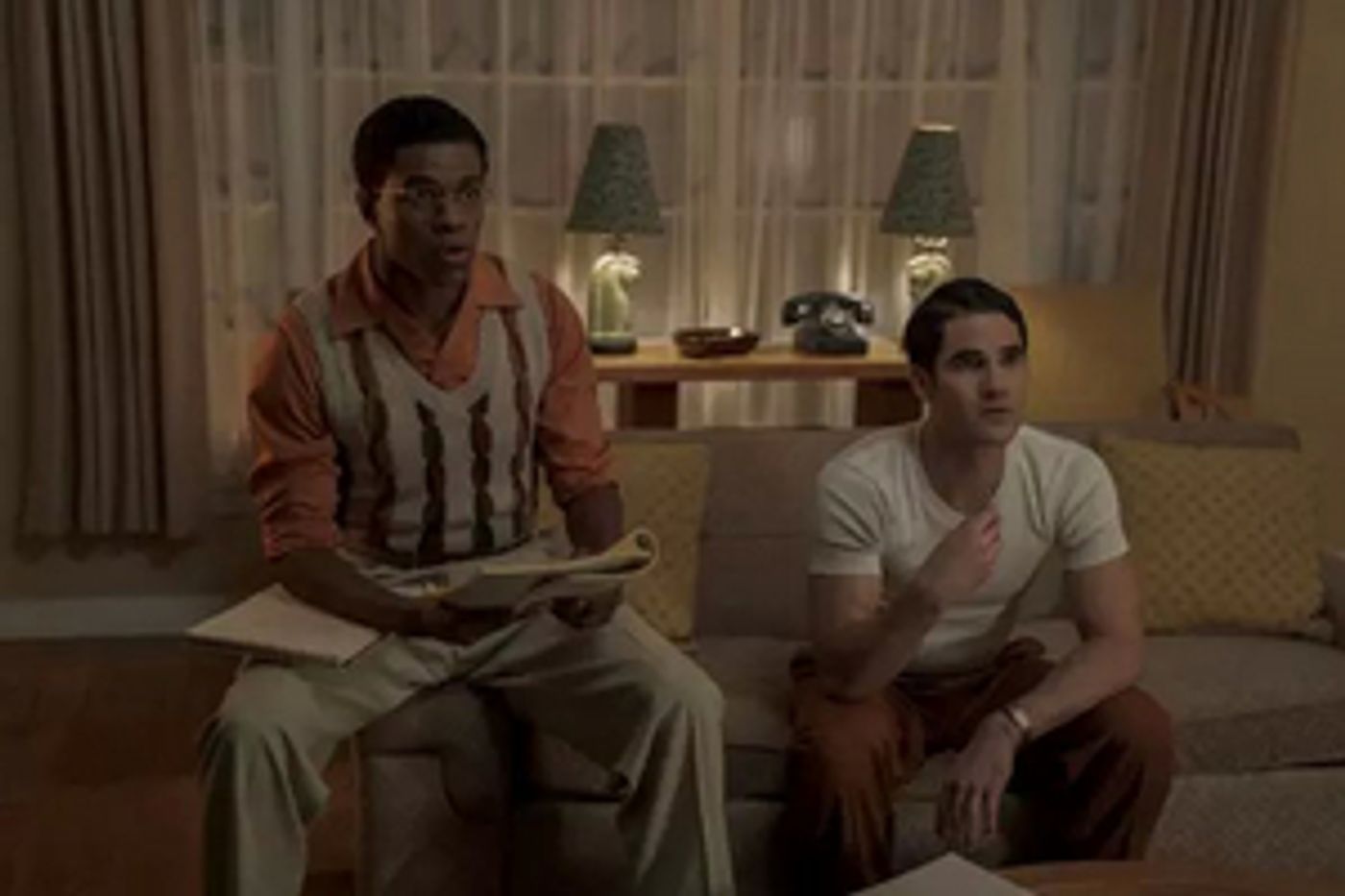Review Roundup: What Do Critics Think of Ryan Murphy's HOLLYWOOD?

This Friday, May 1, Netflix will debut their new limited series from Ryan Murphy and Ian Brennan, HOLLYWOOD. The series follows a group of aspiring actors and filmmakers in post-World War II Hollywood as they try to make it in Tinseltown - no matter the cost. Each character offers a unique glimpse behind the gilded curtain of Hollywood's Golden Age, spotlighting the unfair systems and biases across race, gender and sexuality that continue to this day. Provocative and incisive, HOLLYWOOD exposes and examines decades-old power dynamics, and what the entertainment landscape might look like if they had been dismantled.
Find out what critics think of the series below!
Daniel D'Addario, Variety:
This limited series braids together Murphy's passionate, camp-inflected interest in THE MOVIES and moviemaking culture of yesteryear with another, somewhat conflicting trademark he's arrived at more recently, the passionately and humorlessly held belief in the rightness of his political stances. What results is a Franken-show that'd have done the old Universal monster movies proud, lurching and stumbling through its story's convolutions with great purpose but little worth saying.
Daniel Fienberg, The Hollywood Reporter:
Hollywood, a consistently handsome, often moving, frequently sanctimonious erasure of the actual slow nature of Tinseltown progress in favor of something that's more a fairy tale than an alt-history. Much more so than Pose, a fundamentally hopeful show set against the unlikely backdrop of the AIDS epidemic, Hollywood too often comes across as simplistic and naive, though if it causes anyone to research the period depicted, there's value in that.
Alan Sepinwall, Rolling Stone:
But Murphy has always been better at big ideas than small details, and the sentimentality of the piece, coupled with the potency of many of the performances, after a while becomes infectious, making Hollywood's weak spots easy to forgive. Eventually, the miniseries becomes a bit too self-congratulatory for its own good, even if its intentions are admirable.
Ben Travers, IndieWire:
Surfacing true stories about Hollywood's shameful past could be one eye-opening service "Hollywood" provides, especially for Netflix audiences who, based on its streaming library, likely don't know much about movies before Will Smith. But the way Murphy blends fact with fiction, not bothering to delineate the actual discrimination from the fabricated kind, means it's just as likely all the slights blend into believable fabrications instead of damning facts. Yes, it's easy to believe everything that happens in "Hollywood" has really happened to someone, some time, in some shape or form, but the consistent cheer in Murphy's series betrays the real pain he occasionally references.
Jacob Oller, AV Club:
Ultimately, Hollywood's message is clear, even if its messaging is muddled. The series is engrossing throughout and its optimism is undeniably winning. In fact, thanks to some perfect juxtapositions in the imperfect finale, it's quite moving. And who couldn't use a Hollywood ending-style pick-me-up right now?
Tom Reimann, Collider:
Hollywood is a celluloid fairy tale, a wonderful daydream about what might have happened if the right people had been in the right place at the right time to topple the sexist, racist, homophobic monolith of studio politics nearly 8 decades ago. Leaning further in the direction of a Capra flick than the hyper-violent revenge fantasy of Quentin Tarantino's revisionist Hollywood tale, Murphy's miniseries is about using your power to raise up others, and taking chances to push for change from within. It's a wholly unique story that might not land with everyone - some viewers may find it hard to accept the show's whimsical heightened reality along with its R-rated elements, and the show's earnestness could be mistaken for naivety. But there can be wisdom in naivety, and I found it impossible not to smile with genuine joy every time the show's many pieces fell so perfectly into place. It's an extremely satisfying watch with an invaluable message, whether you're in the entertainment industry or not - use your voice to help those whose voices aren't being heard.
Hugh Montgomery, BBC:
As the story progresses, the lack of narrative tension becomes increasingly absurd. Everything comes good, unbelievable volte-faces abound, and finally, to compound the pollyanna-ishness of the whole thing, stray characters are romantically paired off in the laziest of manners. More broadly, there is something wilfully incurious about the way in which the show has its lead ensemble club together in near-perfect solidarity, all united in one shared mission: after Bette and Joan, an astute study of two successful women conditioned to become rivals by the misogynist forces swirling around them, it is remarkable how unwilling Murphy is to consider here both the fractures that have complicated battles for equality, and the way in which the status quo has pitted minorities and the oppressed against each other.
Reader Reviews
Videos

